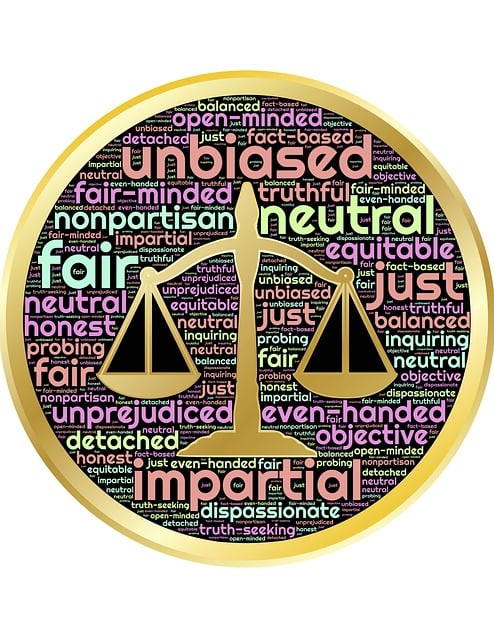Administrative Law Judges (ALJs) play a key role in resolving specialized disputes, with their decisions serving as a first step before higher court appeals. Appealing ALJ decisions involves complex legal arguments focused on interpretation of laws and regulations, navigating distinct procedures by jurisdiction. This process is crucial for high-stakes cases, requiring strategic preparation to challenge outcomes and ensure fairness within the legal framework.
Litigation Types: Navigating Through Appeals is an essential guide for understanding the intricate process of appealing administrative law judge decisions. This comprehensive article delves into key aspects, including the role of the administrative law judge, grounds for appeal from a legal perspective, procedural steps involved, and common challenges faced. Learn effective strategies to enhance your chances of success in navigating these complex cases.
- Understanding Administrative Law Judge Role
- Grounds for Appealing Decisions: Legal Perspective
- Procedural Steps in Appealing Cases
- Common Challenges and Effective Strategies
Understanding Administrative Law Judge Role
In many legal systems, Administrative Law Judges (ALJs) play a crucial role in handling various disputes, particularly in specialized areas like labor relations, benefits administration, and regulatory affairs. Their decisions carry significant weight, often serving as the initial step before appealing to higher courts. ALJs are responsible for conducting hearings, evaluating evidence, and rendering decisions based on the law and regulations governing specific administrative bodies. This process is designed to ensure fairness and consistency in matters that don’t require a jury trial, contrasting with general criminal defense scenarios where juries decide guilt.
Appealing Administrative Law Judge decisions follows distinct procedures, varying across jurisdictions. These appeals often involve complex legal arguments centered around the interpretation of laws and regulations. While traditional jury trials are not typically part of this process, the outcome can have substantial implications for individuals or organizations accused of white-collar and economic crimes. Understanding the ALJ’s role is essential when navigating these appeals, ensuring that all parties involved can effectively exercise their rights within the legal framework.
Grounds for Appealing Decisions: Legal Perspective
In the realm of administrative law, individuals or entities dissatisfied with a judge’s decision have the right to appeal, offering a chance to challenge and potentially alter the outcome. The grounds for appealing are carefully outlined in legal frameworks, ensuring fairness and adherence to due process. These appeals often revolve around perceived errors in the application of laws or regulations, factual inaccuracies, or procedural irregularities. From a legal perspective, appealing Administrative Law Judge decisions is a strategic move to safeguard against what may be seen as judicial biases or misunderstandings of complex legal matters.
Understanding the appeal process is crucial for both litigants and judges, as it fosters a sense of transparency and justice within the system. In many cases, appeals can lead to the reversal of decisions, providing relief to those who believe they have been wronged. This mechanism encourages a constant review and refinement of legal interpretations, ensuring that even the most well-respected Administrative Law Judges remain accountable to the broader philanthropic and political communities they serve. Moreover, the appeal process allows for a second look at cases, sometimes resulting in complete dismissal of all charges if the appealing party can demonstrate overwhelming evidence of error or injustice.
Procedural Steps in Appealing Cases
Appealing an Administrative Law Judge (ALJ) decision is a crucial step for individuals or entities involved in high-stakes cases. The procedural steps involve careful navigation through various stages, beginning with filing a notice of appeal within specific time frames. This initial move triggers a process that could potentially achieve extraordinary results, especially when all stages of the investigative and enforcement process are rigorously contested.
Each stage of the appeal requires meticulous preparation and adherence to legal protocols. Parties involved must assemble comprehensive case briefs, highlighting key legal arguments and evidence to support their claims. Presenting a compelling argument before an appellate body is paramount in securing a favorable outcome, which could set aside or modify the ALJ’s decision. This process demands a deep understanding of administrative law and procedural rules to ensure successful navigation through this complex landscape.
Common Challenges and Effective Strategies
Litigation comes with its fair share of challenges, especially when navigating complex legal landscapes like administrative law. One common hurdle is understanding and appealing Administrative Law Judge (ALJ) decisions, which often require meticulous review and strategic planning. These high-stakes cases can be particularly daunting due to their intricate nature and the potential significant impact on businesses and individuals.
Effective strategies for overcoming these challenges involve a combination of legal expertise and proactive measures. For instance, meticulous record-keeping and comprehensive case preparation are crucial. In white-collar defense, where jury trials may loom, having a robust strategy that addresses procedural and evidentiary issues can make all the difference. Additionally, staying informed about relevant legal precedents and regulatory changes enables legal professionals to craft compelling arguments, ensuring their clients receive fair and just outcomes, even in the face of complex administrative law matters.
Understanding the process of appealing an Administrative Law Judge’s decision is crucial for anyone navigating administrative law. By familiarizing yourself with the grounds for appeal, procedural steps, and common challenges, you can effectively navigate this complex landscape. Remember, knowing your rights and employing strategic approaches can significantly impact the outcome of your case. When considering an appeal, delve into the specific legal arguments that support your position and present them clearly to increase your chances of success in appealing Administrative Law Judge decisions.






